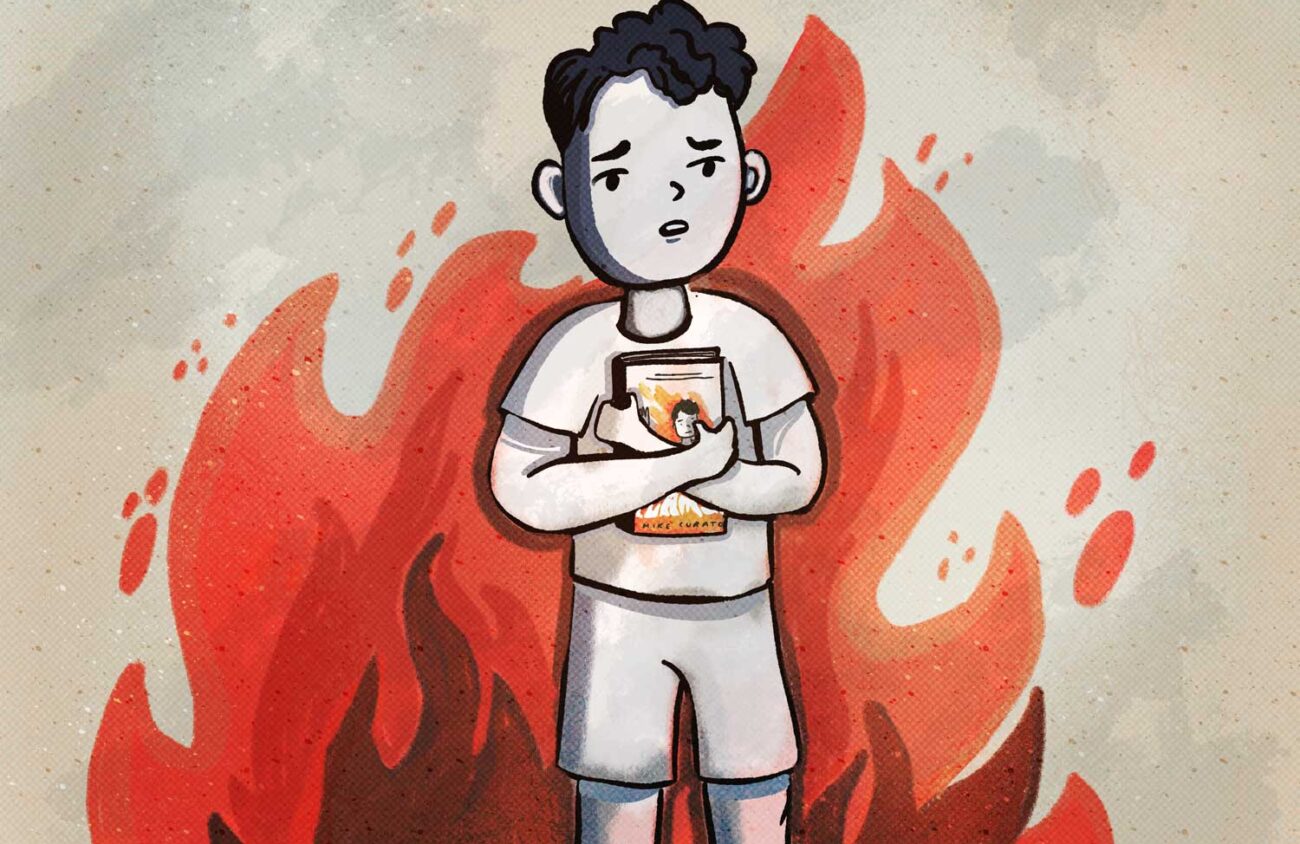Flamer, a graphic novel about 14-year-old Aiden Navarro and his experience at a Boy Scout summer camp as his queer identity conflicts with his Catholic upbringing, was the fifth most challenged book in 2023, according to the American Library Association. The ALA says it was challenged for its queer content and that challengers claimed it was “sexually explicit.”
In March, the Siuslaw School District 97J school board in Florence voted 4–3 to ban Flamer by Mike Curato from the Siuslaw High School library, despite the dissent of a school board-formed committee and every public commenter who spoke on the subject at the meeting.
A Siuslaw High School student made a complaint about the book having implied sexual content and vulgar language. The complaint was first denied by the school’s librarian, then by the principal and vice-principal, and finally by a District & Community Review Committee made up of seven community members from various backgrounds, including a Scoutmaster, a pastor, a mother and business owner, an English teacher, and an author. The student appealed until it reached the school board.
Alyssa Donoho, the co-chair of the Oregon Library Association’s Intellectual Freedom Committee, says that “sexually explicit” is a “key word being used to activate people who want to ban books.”
“Just because a book has material or something about sex in it,” she adds, “I don’t think it’s always going to be sexually explicit in the way that folks who are trying to ban books are saying it is.”
The Miller Test is a legal precedent established by the U.S. Supreme Court in 1973 that determines whether material is obscene and unprotected by the First Amendment. Donoho was invited to present on the Miller Test by the district and did so shortly before the Siuslaw 97J school board met on March 12. Based on the standards laid out by the Miller Test, Donoho says Flamer could not be classified as obscene.
Ned Hickson, an author and retired journalist who was on the seven-person review committee, says the Miller Test was “not brought up at all,” at the board meeting, “even though they spent 30 minutes prior to the board meeting listening to someone talk about what their criteria is, not once.”
Hickson says his review of the graphic novel as a 58-year-old made him reconsider his own behavior as a teen.
“I thought, ‘Oh my God, how many times did I say something that I had no idea was making someone else feel really uncomfortable when I was in high school?’” he says. “The irony of it is that the school board is saying they’re uncomfortable with the language, which, in a way, is the whole point of the book, how words matter and what you say impacts other people.”
The school board determined that Flamer belonged in a public library, not a school library. Since the book became a subject of discussion, Siuslaw Public Library Director Meg Spencer says it has been checked out often enough that the library has added more copies to its shelves.
“The thing about taking a book off a shelf,” Spencer says, “is you’ve just ended the conversation. There’s not an ability to talk about if we’re letting bullying happen in our schools or on our streets when we don’t have the ability to see that reflected in the material that we read. We’ve ended that conversation. We’ve lost the color in our rainbow.”
Spencer says that those who have read pieces of the novel and found it offensive are reacting appropriately but out of context.
“If you heard a kid saying that to another kid, of course what you would say is cut that out,” she says. “But within the book, what we’re seeing is how it’s impacting Aiden in his heart.”
Board Chair Brian Lacouture led the March 12 discussion of Flamer’s removal from shelves.
“I don’t disagree with the message,” he said. “However, I think it’s a total degradation of us as a society that we think that we have to have this kind of language in a book to get our message across.”
Lacouture voted in favor of the ban. Lacouture did not respond to requests for comment.
While he could not vote, Siuslaw 97J Superintendent Andy Grzeskowiak spoke at the session: “There are parts of the book that I don’t like, but again, I see it having serious value for someone else. The book is not for me.”
Grzeskowiak told Eugene Weekly in an email statement that “the district and high school administration will seek to find another book of the same topical material with regards to suicide prevention and anti-bullying.”
